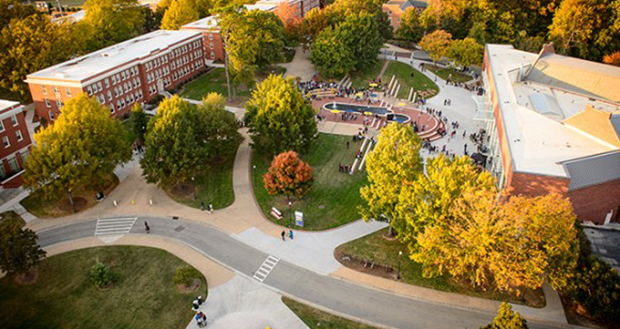Her research focus began when she took a university post in North Carolina.
With her master’s in hand, Laura Gonzalez came to work at NC State’s First Year College as an academic counselor. She earned her doctorate in counselor education and met her future husband, who is from Panama.
She learned by observation the challenges Latino immigrants face and maneuver. She was inspired to write her dissertation on college level choices of Latino students.
Now in her seventh year at UNCG, she is an assistant professor in the UNCG School of Education’s Counseling & Educational Development program. It is rated No. 2 nationally by US News and World Report.
Last year she received the North Carolina Counseling Association Award for Professional Writing and/or Research as well as the UNCG School of Education Mentoring/Advising/Supervising Award.
Her applied research focuses squarely on Latino families and educational access. She sees that Latino parents want their children to succeed academically here in America – but the parents often face cultural barriers in doing so.
“Immigrant parents are sometimes isolated,” she notes, even as their kids become acculturated. She is working, in collaboration with others, to give Spanish-speaking parents the confidence and cultural skills to help them guide their children succeed in school.
She is a member of the Guilford County Schools Latino Advisory Board, and has done research in a variety of locations in the Triad area.
Some CED graduate students have done research with her, such as conducting qualitative interviews.
She is eager to emphasize that Latino parents may not be as visible at school as others – for example, some may not volunteer or take the lead. But it’s a misconception if you think they don’t care. They may care more, but are restrained by culture. For example, many Latinos have a perception that “Educators are professionals; I should not interfere.” They’re in a new country, with different ways of interacting with teachers and parents and different expectations.
“They are committed to the kids’ future. You don’t leave all you have in your former country to give your child a better life, and not be committed.”
She has created in Forsyth Country, with funding from the Kathryn Reynolds Charitable Trust, 8-week group sessions to help Latino parents guide their children toward their educational futures. (The Winston-Salem Foundation is funding it this fall.) “It’s about ‘how’ to get involved,” she explains, “giving them the tools and encouragement.” She works with churches and nonprofits to reach out to prospective parents.
She is struck by the resilience of the immigrant families, as they often work many hours at difficult jobs as they look with optimism at their children’s future. They want a better life for their children. They dream of their children’s future.
Through her applied research, she is working to give the parents skills to help their kids reach their full academic potential, through high school, college and beyond.
By Mike Harris
Reposted from Campus Weekly
